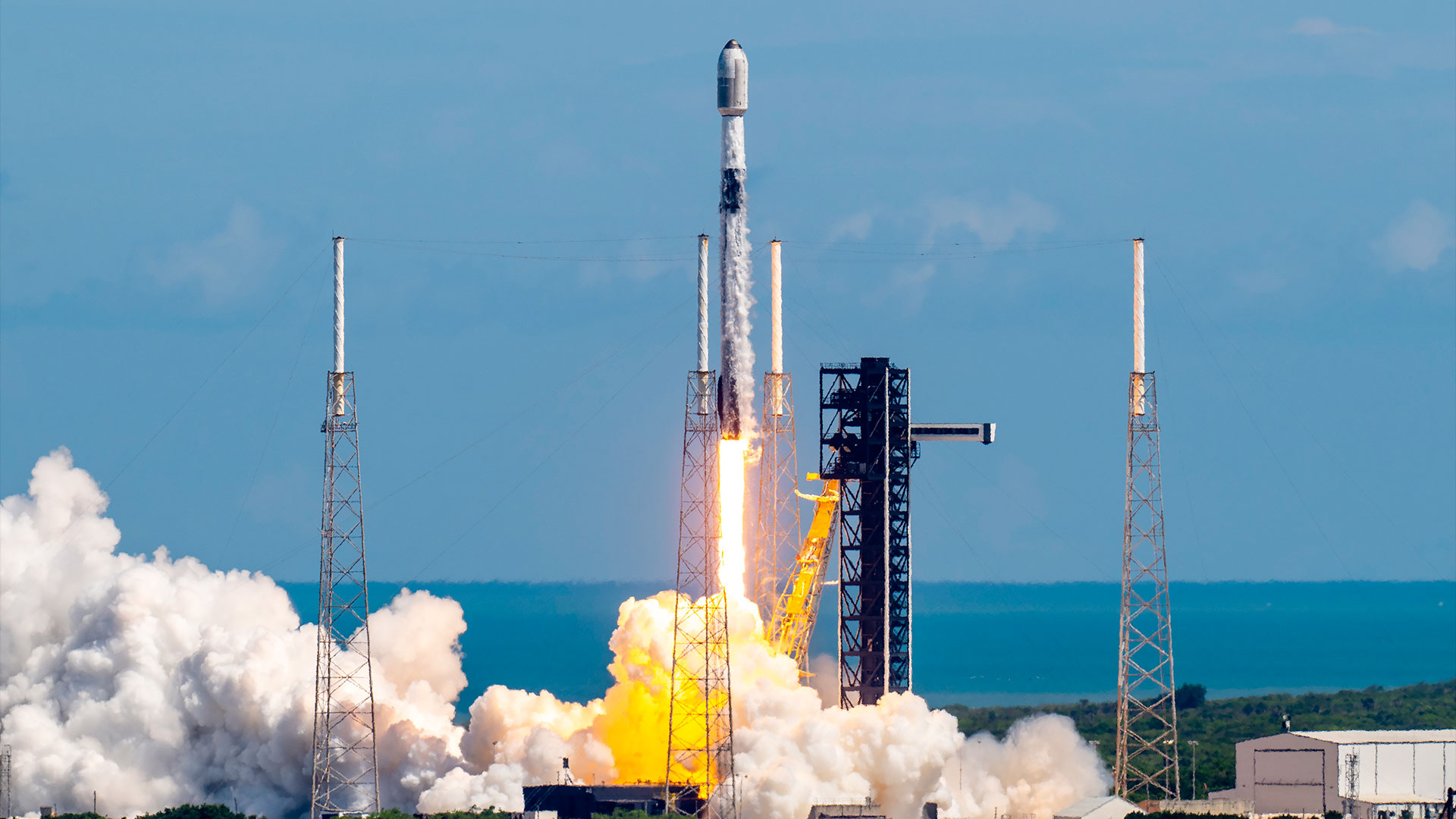Jupiter-bound JUICE probe snaps photo of Earth, the moon and Uranus
Europe's Jupiter probe has captured a stunning view of Earth, the moon and a surprise planetary guest.
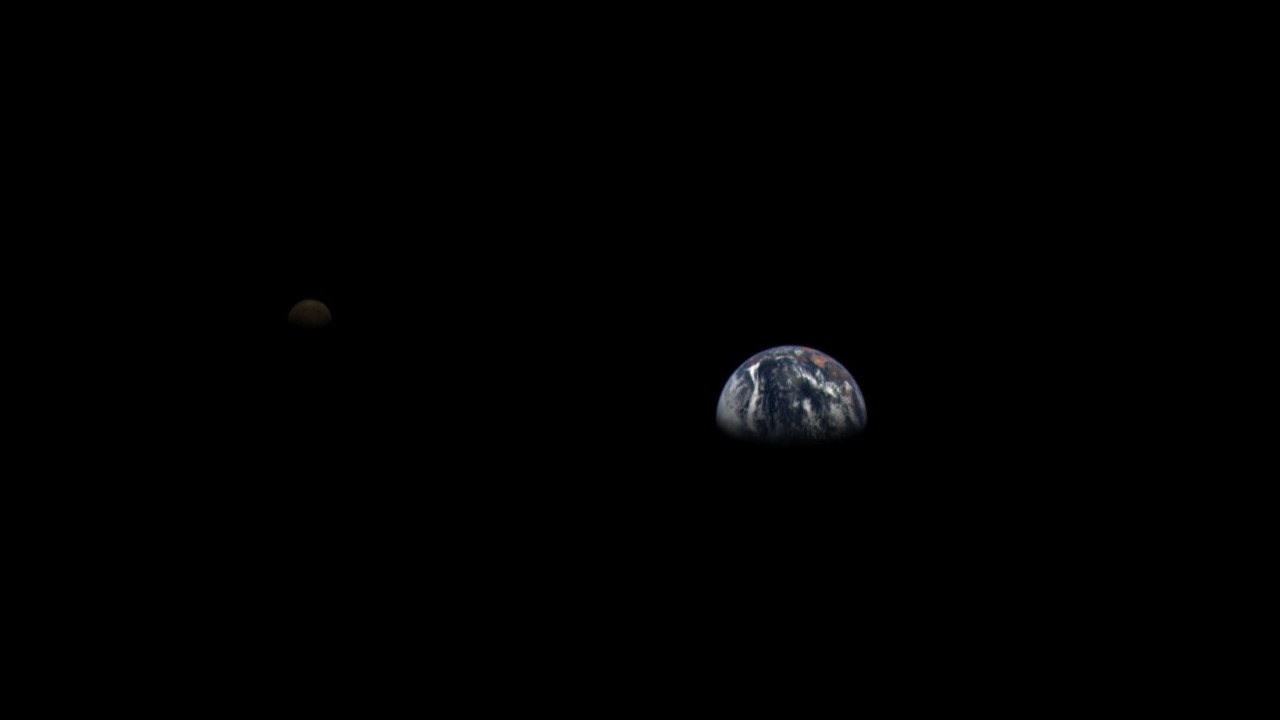
Update for Sept. 20: This story was updated after ESA released another image of Earth and the moon as seen by JUICE's JANUS scientific camera, which was designed to take high-resolution photos of Jupiter and its icy moons.
Europe's Jupiter probe has captured a stunning view of Earth, the moon and a surprise planetary guest.
The European Space Agency's (ESA) Jupiter Icy Moons Explorer (JUICE) mission, which launched on April 14, 2023, captured a unique view of the Earth, its moon and Uranus, which, like Jupiter, is a gas giant. The celestial trio was photographed by JUICE as the spacecraft makes its way toward Venus for its second gravity assist in 2025.
"These two little marbles we call our cosmic home were photographed by JUICE from over 5 million km [3 million miles], as the spacecraft waved us goodbye while heading towards Venus," ESA wrote in a post on X (formally Twitter) releasing the new images on Sept. 18.
A gravity assist is a maneuver in which a spacecraft uses the gravity of a celestial body to propel it toward another. Swinging by Venus, along with flybys of Earth and the moon, will help JUICE reach the Jupiter system in 2031.
In August, JUICE performed a first-of-its-kind Earth-Moon gravity assist, which gave the spacecraft an extra boost on its way to Venus. After visiting the second planet from the sun, the spacecraft will complete two more flybys of Earth in 2026 and 2029, both without the additional boost from the moon.
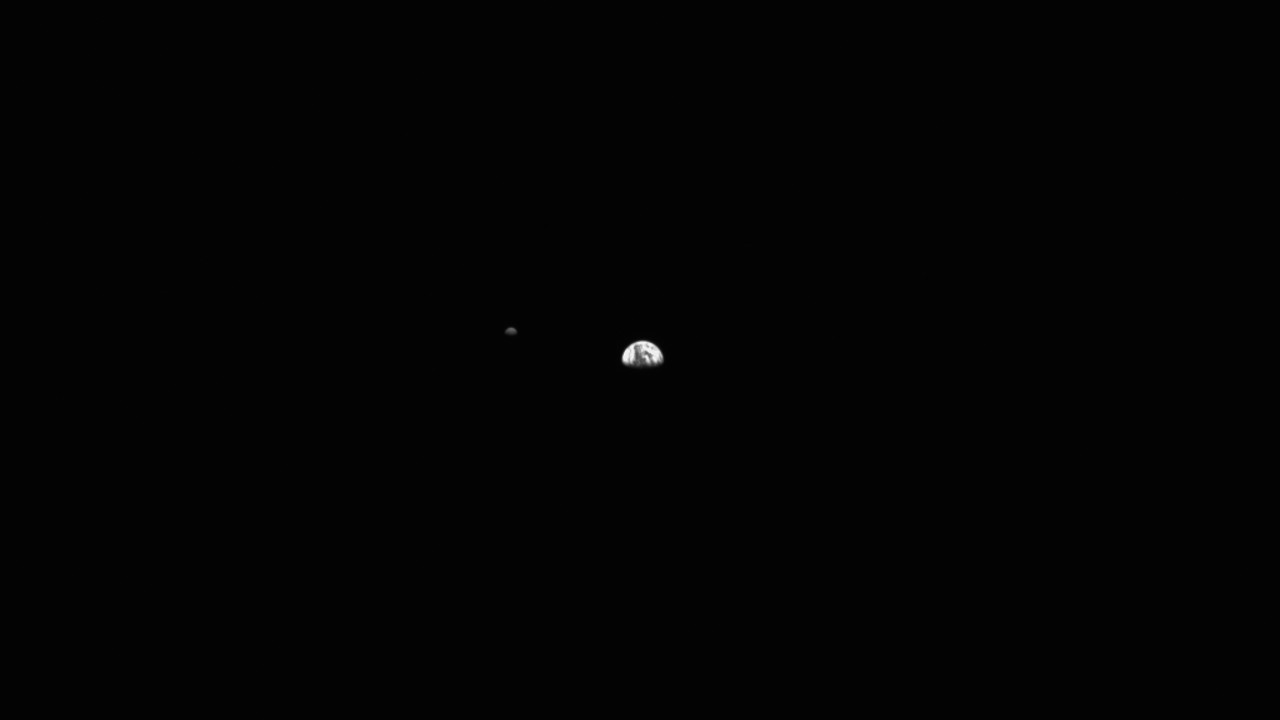
As the spacecraft looked back at the Earth and moon, it also captured the planet Uranus in the distance.
Breaking space news, the latest updates on rocket launches, skywatching events and more!
"One oversaturated image brought to light a photobomber: planet Uranus, which was 2.9 billion km [1.8 billion miles] away from JUICE," ESA officials wrote in the post on X. "Can you spot which dot is the planet?"
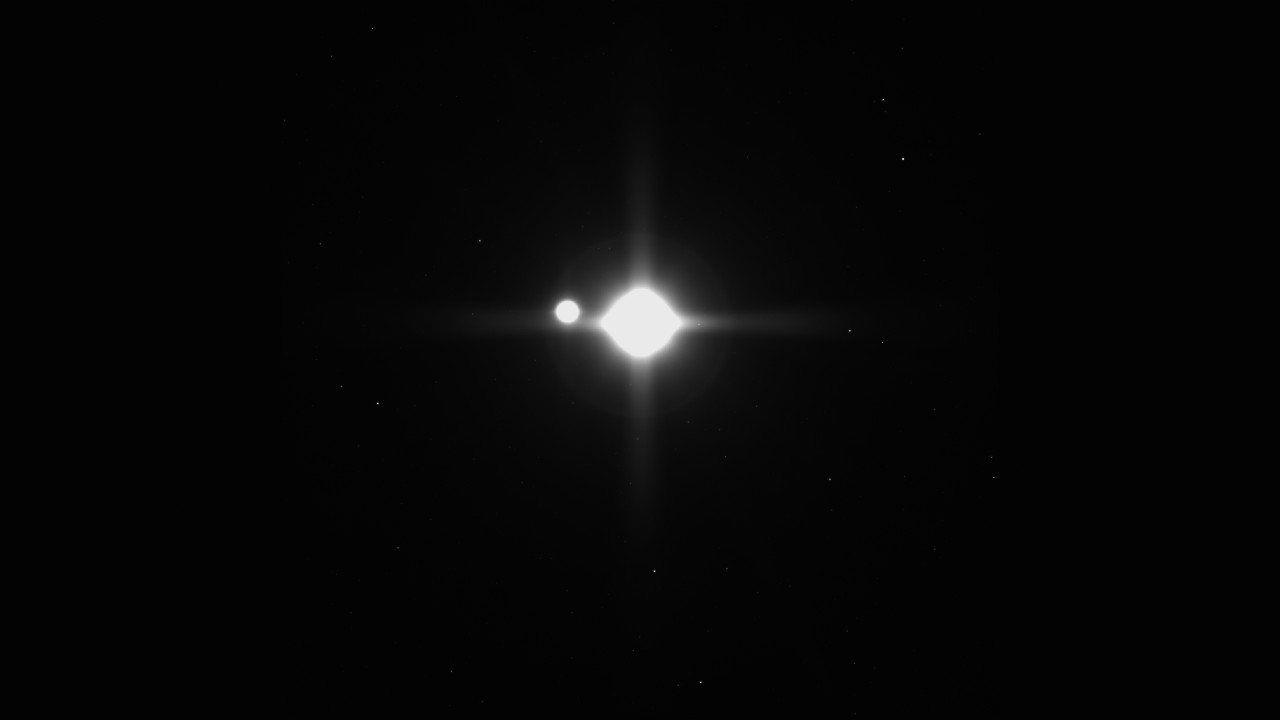
The new images from JUICE were taken using different exposure times as part of inflight tests and calibrations of the spacecraft's two monitoring cameras. The cameras offer different fields of view and are tasked with monitoring the spacecraft's instruments in flight.
JUICE is designed to explore Jupiter and its three large ocean-bearing moons, Ganymede, Callisto and Europa. It will investigate the gas giant's complex environment and look for signs of possible habitability on the icy moons.
Join our Space Forums to keep talking space on the latest missions, night sky and more! And if you have a news tip, correction or comment, let us know at: community@space.com.
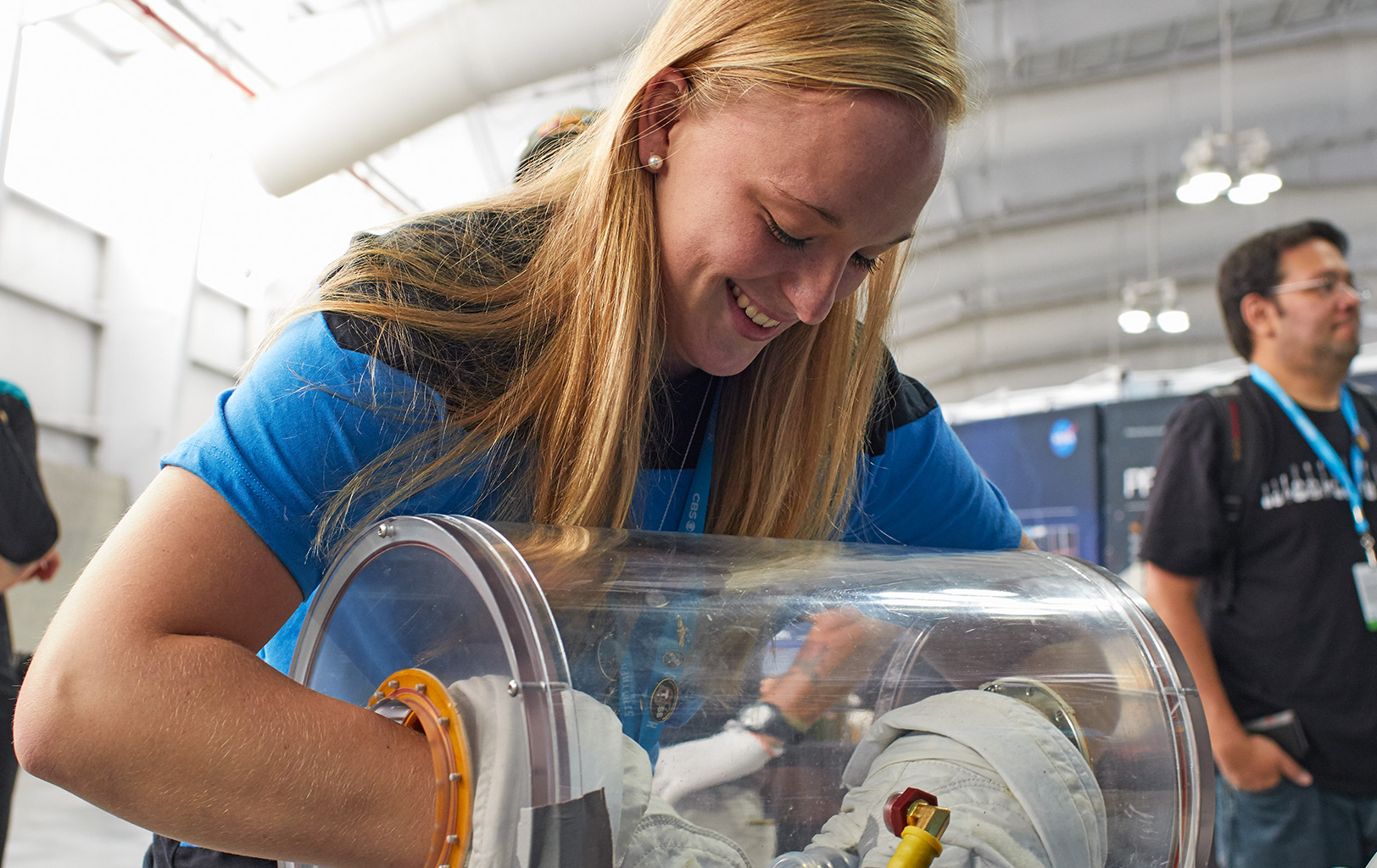
Samantha Mathewson joined Space.com as an intern in the summer of 2016. She received a B.A. in Journalism and Environmental Science at the University of New Haven, in Connecticut. Previously, her work has been published in Nature World News. When not writing or reading about science, Samantha enjoys traveling to new places and taking photos! You can follow her on Twitter @Sam_Ashley13.
-
daveve using different exposure times as part of inflight tests and calibrations of the spacecraft's two monitoring camerasReply
Would suggest an edit here: images were taken by Juice NAVCAM.
JMCs would have platform elements in view.
Source: I commanded these images.
